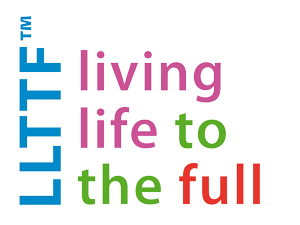Women’s College Hospital BounceBack study
An article has been published online in Supportive Care in Cancer “An examination of depression, anxiety, and fear of recurrence among cancer survivors who participated in a virtual cognitive behavioral therapy (CBT)-based telephone coaching program” (BounceBack).
You can review the full paper here: https://rdcu.be/cObNU
Here are some quick highlights from the authors of the paper:
- The study examined depression, anxiety and fear of recurrence among cancer survivors who participated in a virtual CBT-based telephone coaching program (BounceBack). Our study is unique to include a fear of recurrence measure and was one of the first to investigate the impact of virtual CBT-based support on all three psychosocial symptoms (depression, anxiety, and fear of recurrence) in cancer survivors.
- Eligible participants from the After Cancer Treatment Transition (ACTT) clinic at Women’s College Hospital were identified, consented and referred to the BounceBack program. Nearly 75% of the ACTT patient population are breast cancer survivors. In total, 44 participants participated in the intervention.
- Measures of depression, anxiety and fear of cancer recurrence inventory were collected at pre- and post-intervention (6-month and 12-month periods).
- Results: Measures of depression and anxiety significantly improved among participants. Measure for fear of recurrence also significantly improved. Participants rated the intervention a mean score of 7 (out of 10), indicating a moderate level of satisfaction and usefulness. It was also reassuring that symptoms did not appear to worsen well after the intervention was completed, as measures remained consistent at the post-intervention time points (6 months and 12 months).
- Conclusion: This study suggested that a virtual CBT-based telephone coaching program can be an effective approach to managing depression, anxiety and fear of recurrence in cancer survivors. (Why it’s important: Traditionally, CBT is designed and delivered as a structured program or series of sessions, involving in-person interactions with a therapist or psychologist. However, the need for more accessible treatment has prompted the mental health system to consider other models of service delivery (e.g., Internet-based) that provide timely support and that are less labour-intensive for patients and less of a burden on the healthcare system).
- Our findings are aligned with the results from a large cohort study that included 7,000 primary care patients who participated in the BounceBack program.
The study was conducted by Women’s College Hospital and CMHA Ontario to examine the impact of a virtual CBT-based telephone coaching program on depression, anxiety, and fear of recurrence in cancer survivors.
Here are some links you can link to to see more information on the study:
Twitter:
.@WCHospital with @CMHAOntario published a study in @MASCC_JSCC examining #depression, #anxiety & fear of recurrence among #cancer survivors who participated in a virtual CBT-based telephone coaching program. Learn about the study & outcome: https://rdcu.be/cObNU #BounceBackON
Facebook/Instagram:
@WCHospital with @CMHA.Ontario have published a study in Supportive Care in Cancer: Springer Journal examining depression, anxiety and fear of recurrence among cancer survivors who participated in a virtual CBT-based telephone coaching program. Learn about the study and outcome: https://rdcu.be/cObNU
LinkedIn:
Women’s College Hospital and the Canadian Mental Health Association, Ontario Division have published in Supportive Care in Cancer: Springer Journal examining depression, anxiety and fear of recurrence among cancer survivors who participated in a virtual CBT-based telephone coaching program. Learn about the study and outcome: https://rdcu.be/cObNU
